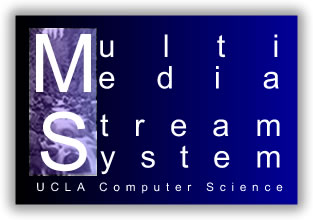 The picture above is taken from a UCLA project that deals with multimedia stream systems. While the term "data streams" and later "event streams" that deals with continuous queries over structured data, have been introduced in the last decade in the database research community (with spin-off to products), the term "streams" has more general and more traditional meaning - referring to multimedia streams - video, voice, news etc... - which by nature belong to the family of unstructured data. In previous posting I discussed some of problems around "event stream processing", and around classification of event processing technologies. However, in this posting, I would like to point out that "stream processing" in its more traditional meaning is an important complementary technology to event processing.
The picture above is taken from a UCLA project that deals with multimedia stream systems. While the term "data streams" and later "event streams" that deals with continuous queries over structured data, have been introduced in the last decade in the database research community (with spin-off to products), the term "streams" has more general and more traditional meaning - referring to multimedia streams - video, voice, news etc... - which by nature belong to the family of unstructured data. In previous posting I discussed some of problems around "event stream processing", and around classification of event processing technologies. However, in this posting, I would like to point out that "stream processing" in its more traditional meaning is an important complementary technology to event processing. First - the result of stream processing is in detection that an event has happened. Examples are: detection of vehicle's registration plate in automatic toll roads (we have in Israel one of these roads, there are other roads like this in Canada and Sweden - and maybe in more places), where the event "vehicle with registration plate X entered the highway in entrance Y in time T". This can be further processed (after correlating to the exit event) for billing purposes, but can also serve for security and other applications. In this case, from the event processing architectural view, the "stream processing" is done in a producer application, which generates events that are processed in the event processing system.
Second - the result of an event processing system can be an input to a stream, example: a game is being presented to the players as a video stream. Decisions made by the electornic player (or by the human player) can be assisted by an event processing system. The result of the decision can be movement of a player to a certain direction, and this is fed back to the video stream. In that case, the video stream is being processed in a consumer application, which gets event as an input.
Of course, a producer can also be a consumer, especially in games which are of iterative nature, thus an application is communicating with an event processing system in both side.
Since much of the events that happen in the universe is sensed thtough various unstructured media, the area of creating events out of multimedia streams, and embedding events to control the behavior of multimedia streams, will be one of the future major directions for the future, we can see some of this already hapening.
No comments:
Post a Comment